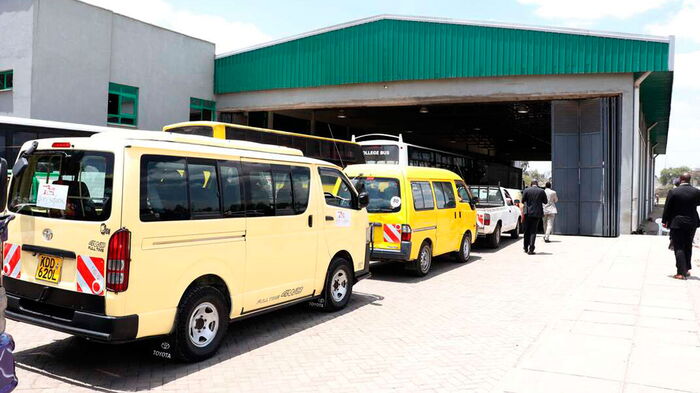Annual inspections, zero-alcohol limit among NTSA’s proposed transport rules

Under the proposed Traffic (Motor Vehicle Inspection) Rules, 2025, all private vehicles that are more than four years old will be required to undergo annual roadworthiness checks.
A new set of far-reaching traffic regulations is set to overhaul how vehicles are operated, inspected, and managed in Kenya, as the government steps up efforts to address the country’s persistent road safety challenges.
The proposed rules, spearheaded by the National Transport and Safety Authority (NTSA), cover private cars, school transport, commercial trucks and drunk-driving, introducing tough compliance measures aimed at saving lives.
Under the proposed Traffic (Motor Vehicle Inspection) Rules, 2025, all private vehicles that are more than four years old will be required to undergo annual roadworthiness checks.
Public transport vehicles, trucks and school buses will also be subjected to compulsory pre-registration inspections and yearly re-examinations to ensure they meet safety standards.
Motorists caught without valid inspection stickers face a fine of up to Sh20,000 or imprisonment for six months. Vehicle inspectors and testing centres found issuing fake certificates risk losing their licenses and facing further legal action.
Vehicles involved in crashes must undergo new inspections, while any structural modifications—including changes to colour, engine or dimensions—must be certified again before being allowed on the road.
Authorities say the move targets the widespread use of poorly maintained and unsafe vehicles, especially in the public transport sector, which has been linked to fatal road accidents.
Alongside these measures, the NTSA has proposed the Traffic (Operation of Commercial Service Vehicles) Regulations, 2025, which impose new rules on trucks, trailers and heavy-duty vehicles.
These include installation of speed limiters, GPS tracking systems, and reflective markings to enhance road safety and visibility. Cargo must be fully covered to prevent spillage, with specific conditions for loose materials like sand and scrap metal.
Drivers of stalled vehicles must place reflective triangles at least 50 metres away to warn oncoming traffic. In addition, vehicle owners will be required to keep maintenance records for at least two years and report fatal crashes to NTSA within 20 hours, including full driver and vehicle details.
NTSA will also conduct random audits to check service records, driver qualifications and working hours. Those found in violation may face license suspensions, revocation, fines of up to Sh20,000 or jail terms of up to six months.
For school transport, the Traffic (School Transport) Rules, 2025, introduce a wide range of safety measures aimed at protecting children. All school buses must be painted in a uniform yellow (Pantone 012C) and equipped with flashing red lights, stop arms, and child-sized seat belts.
Each vehicle must carry a fire extinguisher, and attendants must be present on buses transporting young children to help them board and exit safely.
Drivers and attendants will be subjected to annual criminal background checks, with those previously convicted of child abuse or drunk driving permanently banned from working in school transport.
Medical fitness assessments will also be mandatory. Before every trip, drivers must inspect the vehicle to ensure that no child is left behind.
To further secure school zones, crossing guards wearing reflective vests and carrying stop signs will be stationed near learning institutions to help children cross the road. Drivers who ignore these guards may face a six-month suspension of their driving licenses.
School buses will only be allowed to operate between 5am and 10pm, and are restricted to carrying only students, teachers or approved staff.
All school transport vehicles must also be fitted with functioning telematics systems and cameras directed toward passengers. In the event of a fatal crash, accident reports must be filed within 24 hours.
In another crucial proposal, the Traffic (Drink-Driving) Rules, 2025, seek to introduce a near-zero alcohol tolerance for drivers of commercial trucks, school buses and public service vehicles, reinforcing the government’s intent to eliminate drink-driving on Kenyan roads.
The rules, developed by Transport Cabinet Secretary Davis Chirchir, are currently open for public feedback, with citizens invited to submit their views before July 22.
